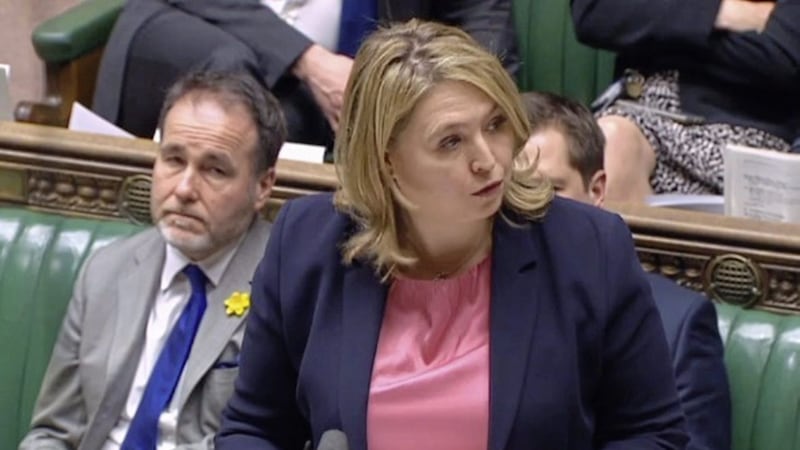As is so often the case it is the dignified and stoical voices of the relatives whose loved ones were so cruelly killed by the British government’s armed forces and their loyalist allies that provide clarity and hope for the future, and make sense out of the legacy impasse.
Represented by many accomplished young lawyers, and supported by organisations such as Relatives for Justice and the Pat Finucane Centre, and by political representatives in Sinn Féin and the SDLP, there is a palpable sense of achievement around the families’ campaigning.
When a few weeks ago Pat Finucane’s widow stood outside Britain’s Supreme Court and declared, ‘We have won’, she gave hope to hundreds of relatives who have campaigned for the truth for their families for decades, just like the Finucanes.
The verdict by the Supreme Court in Pat’s case lifted not only the Finucane family’s morale it lifted the morale of all those families who are campaigning for truth and justice.
Then came Karen Bradley’s remarks in the House of Commons.
They were not misspoken, as suggested by Bradley in her attempted clawback, after she caused widespread outrage, but had all the appearance of being coordinated in advance with the DUP’s Emma Little-Pengelly who had asked the question.
And there’s a certain irony to that, given the DUP’s former close association with Ulster Resistance, which was involved in gun-running, and that Emma’s father, Noel Little, was also convicted in relation to an arms smuggling plot.
Bradley bluntly stated that killings carried out by members of the British army and the RUC were not crimes but the actions of “people fulfilling their duties in a dignified and appropriate way”.
She was saying aloud what the British establishment actually believes – ‘our boys’ can do no wrong be it in Belfast or Basra. And before that, in Cyprus, in Aden, Kenya, Malaya, India.
However, while they have exercised this ‘right to kill’ with almost total impunity they are now faced with a formidable and determined phalanx of families, backed by a team of legal scholars and human rights’ advocates who know the law, and exercise their legal prowess to assist families.
It is this prowess that helped secure the Supreme Court verdict in the Pat Finucane case and in the case of Pearse Jordan last week. It is also seen in the advocacy at the harrowing inquest into the Ballymurphy massacre. And, in a separate development came a breakthrough with the announcement that funding is being released in relation to the Lord Chief Justice, Sir Declan Morgan’s plan for having all legacy cases dealt with within five years.
In Pat Finucane’s case the Supreme Court recognised that the family had a legitimate expectation that an inquiry would be held; that Stevens/Cory and De Silva were investigations but were not Article 2 human rights compliant or capable of getting to all the facts and were a flawed approach to uncovering the truth about the killing of Pat.
The Finucane family believe the Supreme Court decision has added considerable legal weight to the moral pressure the family and supporters had built up.
It will be very difficult for the British government to ignore the inescapable legal logic of Britain’s ultimate legal arbiter – that there should be an Article 2 compliant international, independent, judicial inquiry into Pat Finucane’s killing.
Pearse Jordan was an unarmed IRA volunteer who was summarily shot dead by the RUC in 1992. In his case the Supreme Court ruled that the family were entitled to a prompt investigation into the killing of their son and the denial of such an investigation was a breach of Article 2 of the European Convention on Human Rights.
The case against Britain just mounts and mounts.
Francis Meehan, whose brother Michael Donnelly was killed by a British army plastic bullet in 1980, attended that highly-charged meeting with other grieving families and Karen Bradley last week. When Francis said that Bradley’s position was “untenable” and that she should resign, she reflected not just the views of families who lost loved ones at the hands of the British state forces, she reflected the position of the entire nationalist community.








